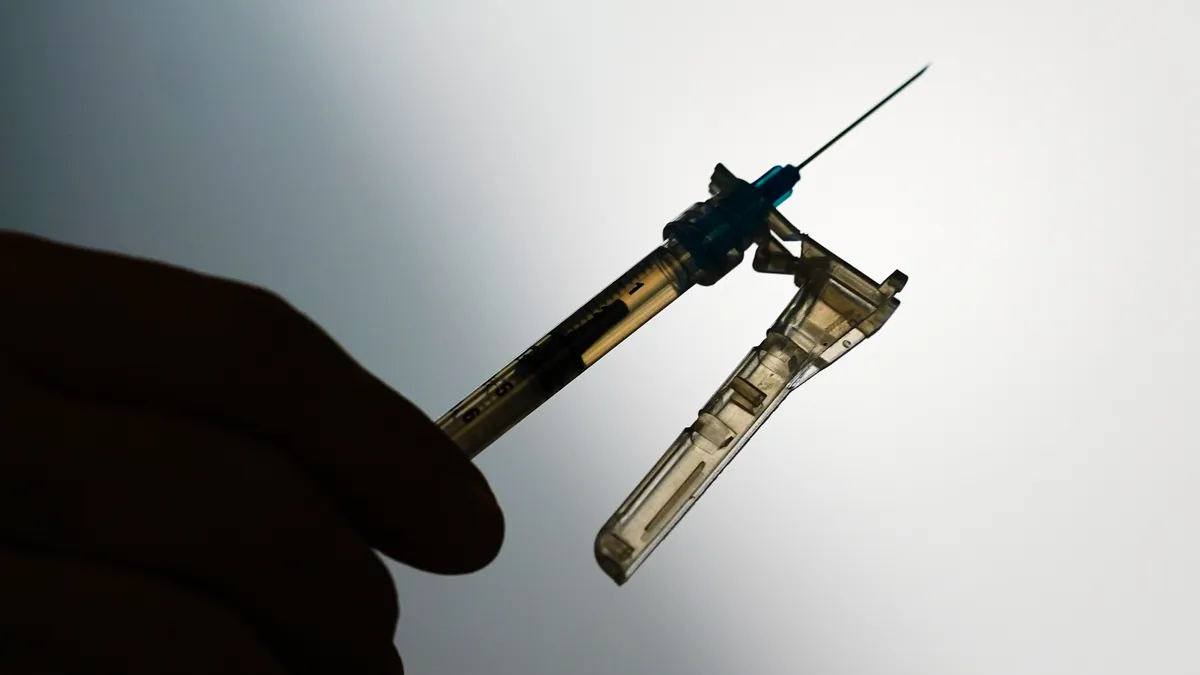UPDATE: Oct. 21, 2019: Graeme Tunbridge has been appointed as interim head of the MHRA medical device unit, following the retirement of John Wilkinson, the agency announced Monday. Tunbridge was previously the group manager for Devices Regulatory Affairs at the MHRA.
Dive Brief:
-
John Wilkinson is set to step down as director of devices at the U.K. Medicines and Healthcare products Regulatory Agency in October.
-
Wilkinson joined MHRA in 2012 when its response to the Poly Implant Prothèse (PIP) breast implant scandal was in the spotlight, and will depart against a backdrop of criticism about its handling of adverse events linked to vaginal mesh devices.
-
Over his seven years at the agency, Wilkinson helped to shape European device regulations and tried to make improvements at MHRA in response to criticism that predated his appointment.
Dive Insight:
Wilkinson was involved in multiple initiatives during his time at MHRA, from the establishment of the agency’s position on medical apps to the development of European Union regulations about devices and in vitro diagnostics.
To an extent, Wilkinson’s areas of focus were defined by the criticisms of MHRA that preceded his arrival. While a government report largely exonerated MHRA over the PIP scandal, others took a very different view. The scandal led to a further assessment of the agency and recommendations about how it could improve, including a call for it to "take devices as seriously as medicines."
Under Wilkinson, MHRA sought to implement the recommendations, for example by hiring clinical staff and working with the U.K. Foreign & Commonwealth Office in Brussels to push for regulations that would strengthen oversight of medical devices across the EU.
MHRA also initiated activities intended to improve its relationships with patients and the public, which had been strained early in Wilkinson’s tenure by the agency’s handling of reports about vaginal mesh implants. Elaine Holmes, of the Scottish Mesh Survivors campaign group, summed up the source of the grievances of patients in comments to the Scottish Parliament in 2014.
"The agency is not an effective watchdog. It does not take our concerns seriously. We have written to it a number of times and telephoned it, but we get standard copy-and-paste replies. The agency does not listen to us,” Holmes said.
MHRA has also faced criticism from politicians over its handling of vaginal mesh devices.
"I include the MHRA in my criticisms. When the public petitions committee took evidence from it, we learned that its detailed analysis amounted to three postgraduate students doing a desktop exercise for two weeks at a cost of £20,000 ($26,000)," Jackson Carlaw, a Scottish politician, said during a parliamentary debate in 2016. Another exchange involving Carlaw suggests MHRA spent £40,000.
The revelation led to strong criticism of MHRA, with one politician describing it as evidence that the way the agency reviews devices is "not fit for purpose" and "completely inadequate." MHRA commissioned the report around the time of Wilkinson’s appointment in 2012 and cited it to support the positions it took up over the following years.
In the wake of the criticism, MHRA has promised to take a "more structured approach to proactive patient engagement and improved safety messaging." However, Wilkinson’s as-yet-unidentified successor may be pressured to make other, more significant changes once an independent report into MHRA’s handling of scandals including vaginal mesh safety delivers its findings.











